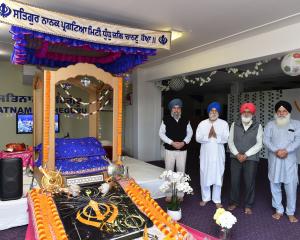The Redroofs Rest Home, Dunedin, resident said he lied "for a laugh".
"I do it to pass the time really, and take the monotony out of the place, but nothing serious," he said.
Although the cheeky 82-year-old believed his ability to lie had worsened with his years, he was not sure if he always got away with it - a point researchers at the university have studied.
Department of Psychology researchers Associate Prof Ted Ruffman, Dr Janice Murray and Associate Prof Jamin Halberstadt compared younger and older adults' skills at deception and found older people could not lie as convincingly as their younger counterparts, or detect when others were lying.
"It could be that older people are less convincing liars because the kinds of cognitive abilities required for successful deceit are also those that tend to deteriorate with age," Prof Halberstadt said, as lying placed demands on memory, planning ability and social understanding.
Flora Campbell (92) agreed with the study's findings as she thought she was no good at lying because she was getting older, and believed she could only tell when she was being lied to "sometimes".
The study involved 60 participants of varying ages being shown clips of 20 people - 10 aged 30 or under and 10 aged 60 or over - expressing their actual and false views on different topics.
The participants were asked to determine if the people in the clips were lying or not.
Prof Halberstadt said the results showed it was easier to tell if a person was lying when the speaker was older, and older participants found it harder to pick out a lie.
Study participants also underwent a test which required judgements of emotions and age.
In it, they were shown images of faces showing six different types of emotion, with researchers varying the length of time they were shown.
Older participants' ability to score well in this test strongly predicted how well they could detect lies, although the results also debunked the proposed idea that recognising brief flashes of negative facial emotions, such as guilt or fear, played a key role in detecting lies.
"While emotion recognition ability explained the difference in lie detection between young and older adults, there was no particular advantage associated with correctly identifying facial emotions displayed for shorter times.
"We still don't know what exactly allows listeners to correctly detect lies, although we know that people can differentiate lies and truth at a rate above chance level," Prof Halberstadt said.
Dr Murray presented their findings at the Association of Psychological Science's annual convention in Washington yesterday. The findings will be published in the US journal Psychology and Ageing.
• Tina Vater was also a study co-author.












